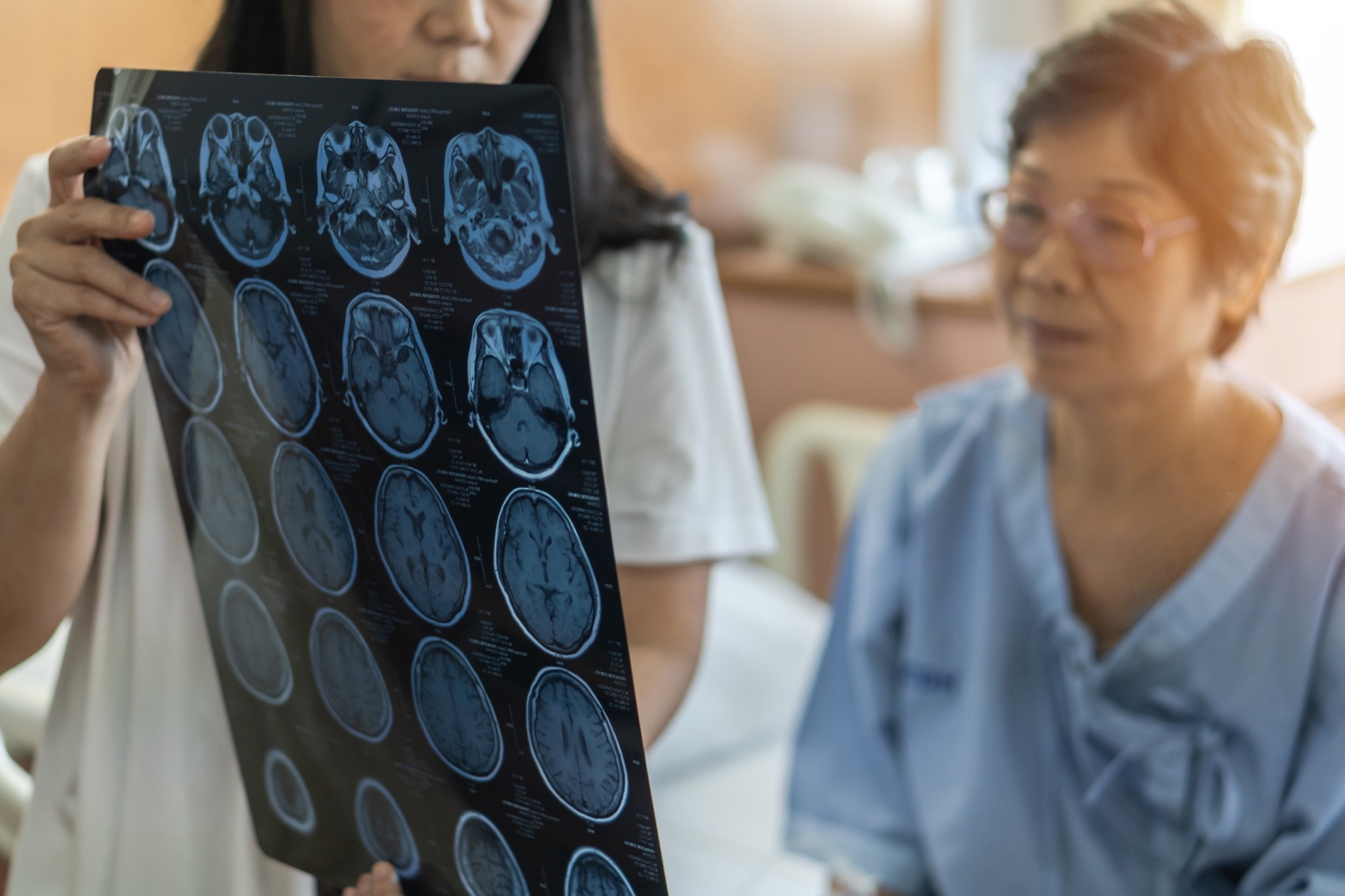A new study reveals that stroke may do more than damage the brain. Instead, strokes could rewire the gut microbiome, creating metabolic shifts that may lead to novel treatments and precision medicine.
 Study: Alterations in gut microbiota and metabolomic profiles in acute stroke: insights into brain–gut axis dysregulation. Image credit: Chinnapong/Shutterstock.com
Study: Alterations in gut microbiota and metabolomic profiles in acute stroke: insights into brain–gut axis dysregulation. Image credit: Chinnapong/Shutterstock.com
Acute stroke presents a significant health burden at the national and global levels. It kills many patients and leaves many others incapacitated, often for life. A recent paper in Frontiers in Microbiology explores gut microbiota associations with the disease process and recovery from acute stroke.
Introduction
Acute stroke is the second leading cause of death and the third leading cause of disability in the world, with ~25 million cases being diagnosed yearly. Stroke causes brain injury, which is worsened by the consequent inflammation. This is further exacerbated by stroke-related changes in the gut and other body systems, like the kidneys and lungs.
The gut microbiota plays a vital role in the host’s metabolic activity. Gut dysbiosis appears to worsen the risk for stroke. Conversely, via the gut-brain axis, acute stroke can cause gut dysbiosis. The gut microbiota also affects the prognosis of the stroke by influencing its clinical severity and course.
Earlier studies have suggested that pro-inflammatory bacteria like Prevotella and Enterobacteriaceae may be increased in such patients. These activate inflammatory pathways and ultimately result in higher levels of inflammatory chemicals in the body, such as TNF-α, IL-6, and IL-1β.
At the same time, beneficial bacteria like Faecalibacterium prausnitzii and Bifidobacterium, which also counter inflammation, are reduced, causing short-chain fatty acid (SCFA) production to drop. This could inhibit regulatory T cell (Treg) activity, causing Th17 cells to become hyperactive and trigger inflammation.
The combined result of these changes is heightened neuroinflammation of the stroke-affected brain. Additionally, Lactobacillus abundance is reduced, decreasing the neuroprotective inhibitory neurotransmitter γ-aminobutyric acid (GABA) production. Such observations have helped explain the occurrence of post-stroke gut dysbiosis in animal models.
Another way to study this is via metabolomics, where the metabolites produced by gut microbes are profiled. Such knowledge could help identify the pathways underlying inflammation and brain injury in acute stroke that are mediated by gut dysbiosis.
The gut microbiota produces essential amino acids and other metabolites. These include multiple neurotransmitters that affect the gut-brain axis and brain function. Other molecules cross the intestinal epithelial barrier to enter the bloodstream, allowing them to penetrate the brain and evoke microglial responses.
Still, much remains to be known about the gut microbiota and its metabolites in the context of acute stroke. The current study aimed to contribute to this research gap.
Study findings
The investigators included 20 healthy people and 20 patients with acute stroke in the study. Untargeted metabolomics was performed on n=6 per group, selected for reproducibility.
Acute stroke patients had markedly altered gut microbiota regarding community structure and composition. Their community structure was different, with higher phylogenetic diversity but lower evenness, dominated by the phyla Firmicutes, Bacteroidota, and Proteobacteria.
Compared with healthy individuals, patients with acute stroke had higher abundances of Faecalibacterium and Agathobacter (with Bacteroides more enriched in healthy controls). Deep shifts in its functional activity accompanied these marked alterations in the gut microbiota composition. Energy-associated and biosynthetic pathways were especially vulnerable to these shifts.
The fecal metabolite pattern also changed dramatically compared with healthy controls. The metabolism of nitrogen, glutathione, and phenylalanine was more frequently upregulated in acute stroke patients. While 122 metabolites were raised in stroke patients, some were significantly lower. Interestingly, SCFA levels were comparable in both groups.
Certain genera acted as hubs in the microbial community, and these varied significantly between healthy controls and stroke patients. Increased abundances of Fecalibacterium and Agathobacter were closely associated with upregulated metabolites.
In addition, stroke patients had a more discrete or scattered association of metabolites with microbes than healthy individuals. Specific microbial genera were associated with the top ten differential metabolites in the two cohorts. This suggests that the altered microbiota accounted for the shift in metabolite profile in stroke patients.
Overall, the authors hypothesize a compensatory, potentially anti-inflammatory shift in the acute phase but emphasize the need for causal validation. They proposed that acute stroke may cause the anti-inflammatory gut microbes to change their production of key metabolites to modulate the inflammatory response.
Since conflicting findings have been reported in other studies, these results need to be validated, preferably using serum markers of inflammation and longitudinal follow-up to identify the course of gut microbiota changes after acute stroke. A more granular approach is essential to unravel strain-specific contributions to the acute response of the gut microbiota to the systemic inflammation induced by acute stroke. The gut-brain axis may well mediate these shifts.
Conclusions
“Our findings indicate that gut dysbiosis in AS patients is closely associated with changes in specific metabolites. This intricate microbe-metabolite-host interaction likely reflects a unique gut metabolic adaptation mechanism in stroke patients.”
If validated, this may represent potential therapeutic targets for acute stroke management. In the long run, such studies may help to develop precision medicine based on the gut microbiota.
Download your PDF copy now!